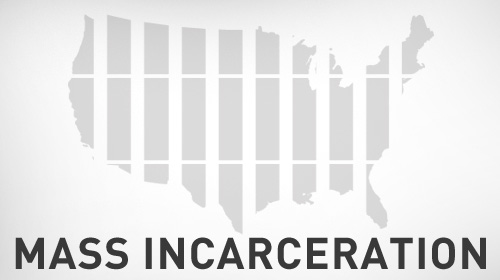
Taking issue with America’s position as the world’s largest jailer, Senator Patrick Leahy (D-VT) spoke to a group of Georgetown Law Students late last week about his vision for the Judiciary Committee’s agenda in the 113th Congress. In a speech that covered a broad range of topics, from immigration the use of drones, Senator Leahy spent a great deal of time on a topic that increasingly impacts all of us: a criminal justice system seemingly fueled by an addiction to incarceration.
There are 2.3 million people currently behind bars in America today. In the federal system, there are currently more than 218,000 people in the custody of the Bureau of Prisons and this number is estimated to increase to over 229,000 by the end of 2013. Undoubtedly, the need to maintain public safety and ensure accountability is non-negotiable.
However, America’s position as the world’s largest jailer suggests that in some cases, incarceration has become the default outcome, rather than the best or the most appropriate one for the crime. While the justice system has been tasked with the awesome responsibility of keeping us safe, which requires many serious offenders to be held in our prisons and jails, it also has a responsibility to deliver fair and proportional sentences.
Not to mention, locking people up isn’t cheap. The current cost of federal incarceration per prisoner is roughly $28,000 a year, money that could be spent on important priorities such as improving schools and healthcare. And there is a human cost as well, for the families and communities who are left behind, and for individuals for whom the reentry process is marked by a struggle to obtain essential rights and services, such as employment and housing, which severely limits their ability to become productive, law-abiding citizens.
Senator Leahy addressed this issue head on, calling for an examination of our “high rate of imprisonment” as well as the hefty price tag that comes with it. As a former prosecutor and Chair of the Senate Judiciary Committee, Senator Leahy is well acquainted with our justice system, and said of current sentencing policies that,
“Our reliance at the state and federal level on mandatory minimums has been a great mistake. I’m not convinced it has lowered crime. I knew that we have imprisoned people who should not be there, and we have wasted money better spent on other things.”
The nation’s “War on Drugs,” has resulted in alarming levels of incarceration in this country. One of the ways this war has been waged is through mandatory minimum sentences for drug offenses. Mandatory minimums require specific prison terms for certain offenses, which if proven, a judge has very little choice but to sentence a person to that term. Half of the federal prison population is serving these lengthy sentences for drug convictions, many of whom have little to no history of violence or prior arrest, and who in a less punitively-focused system might have been rehabilitated through drug treatment programs. Many of those convicted are young, and as Senator Leahy himself said, “too many” of them are minorities, who have been unfairly impacted by a system rife with racial bias.
Mandatory minimums represent a black and white solution to problems which are deeply nuanced, and by continuing to ignore this distinction we deprive our citizens of the promise of our justice system, which is not to blindly apply rigid, inflexible standards, but to weigh the facts and circumstances of every case to produce an outcome that is proportional to the crime. We also compromise public safety, wasting time and precious resources by locking up thousands of people for ultimately minor crimes. In Senator Leahy’s words, “The idea that we protect society by one-size-fits all, or the idea that we can do this kind of symbolism to make us safer, it just does not work in the real world.”
While we are encouraged by Senator Leahy’s recognition of the problem with mandatory minimums , it is ultimately up to Congress not to enact any more mandatory sentences, to eliminate those already in law, and restore reasoned solutions based on facts, not political posturing.
Learn more about mandatory minimum sentences: Sign up for breaking news alerts,follow us on Twitter, and like us on Facebook.



